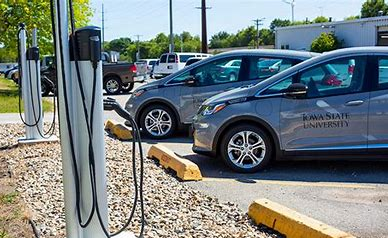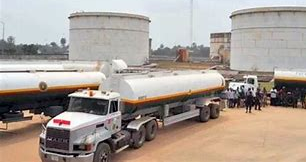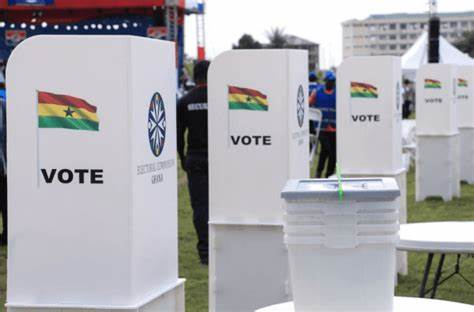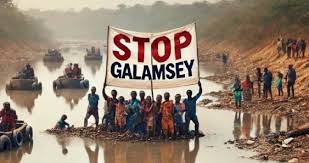Ghana has taken a significant step towards providing clean water to its citizens with the launch of the next phase of the Five Districts Water Supply Project. President Nana Addo Dankwa Akufo-Addo commissioned the project, which aims to benefit 95 communities and nearly 90,000 people in the Volta Region.
Bringing Clean Water to Communities
President Akufo-Addo emphasized the importance of the project and outlined its key components. The initiative includes the construction of concrete tanks, the establishment of a water booster station, and the laying of water pipelines, all aimed at ensuring the provision of safe and reliable water to the beneficiary communities.
Government Commitment to Water and Sanitation
President Akufo-Addo reaffirmed the government’s commitment to providing adequate, safe, affordable, and reliable water services to all regions across the country. The government aims to achieve this goal by prioritizing governance and sector institutional strengthening, while also aligning with the United Nations Sustainable Development Goals (SDGs) on sanitation and hygiene.
Progress in Water Infrastructure Projects
The president highlighted the successful completion of previous water projects, such as the Water Supply Improvement Project implemented through the Ghana-Spain Debt Swap Development. He also mentioned the Rural Communities and Small Towns Water Supply Project, which focuses on improving water delivery in selected regions, benefiting a significant number of people.
Expanding Access to Clean Water and Sanitation
Ghana is working on several ongoing water projects, including the Keta Water Supply Project and the Wenchi Water Project. These initiatives aim to provide reliable and sustainable water supply to specific communities, meeting their present and future water requirements.
Towards Sustainable Water Supply
The Sekondi-Takoradi Water Supply Project is a substantial undertaking that will serve a large population within the Sekondi-Takoradi communities. The government is committed to completing the project, which will significantly contribute to the region’s water needs.
Future Plans and Transboundary Projects
President Akufo-Addo mentioned the ongoing feasibility studies for the Sogakope-Lome Transboundary Water Supply Project, which aims to improve access to clean drinking water for millions of consumers. Additionally, the government is actively seeking funding to support sustainable improvement in water access in the Southern Volta area.
Ensuring Quality Water Services
In line with their commitment to providing clean water, the Ghanaian government emphasizes the importance of maintaining high-quality standards in water supply projects. Quality assurance measures, such as regular water testing, adherence to safety protocols during construction, and implementing efficient water treatment processes, are key considerations to ensure the delivery of safe and reliable water to communities.
Questions and Answers
Q1: How many communities will benefit from the Five Districts Water Supply Project phase three?
A1: The Five Districts Water Supply Project phase three is set to benefit 95 communities in Central Tongu, Adaklu, and Agotime-Ziope, bringing clean water to nearly 90,000 people in the Volta Region.
Q2: What is the government’s strategic goal regarding water services in Ghana?
A2: The government’s strategic goal is to ensure that all regions across the country are provided with adequate, safe, affordable, and reliable water services. This commitment aligns with the United Nations Sustainable Development Goals (SDGs) on sanitation and hygiene by the year 2030.
Q3: How is the Ghanaian government financing these water projects?
A3: The phase three of the Five Districts Water Supply Project is financed by a concessionary
facility from Raiffeisen Bank International AG of Austria. Other projects have received funding from various sources, including credit facilities from international organizations like the World Bank and the Ghana-Spain Debt Swap Development.
Q4: What measures are being taken to ensure the quality of water services provided?
A4: The Ghanaian government prioritizes quality assurance measures to ensure the delivery of safe and reliable water. These measures include regular water testing, adherence to safety protocols during construction, and implementing efficient water treatment processes to meet high-quality standards.
Q5: Are there any future plans for expanding access to clean water and sanitation in Ghana?
A5: Yes, the government has ongoing projects such as the Keta Water Supply Project, the Wenchi Water Project, and the Sekondi-Takoradi Water Supply Project. Feasibility studies for the Sogakope-Lome Transboundary Water Supply Project are also underway, aiming to improve water access for millions of consumers.
Conclusion
Ghana’s commitment to providing clean water and sanitation services to its citizens is evident through the launch of the next phase of the Five Districts Water Supply Project. By addressing common questions, we can see that the government aims to bring clean water to numerous communities, ensure high-quality standards, and have ambitious plans for future projects. With these efforts, Ghana is making significant progress towards achieving its goal of providing equitable access to safe and reliable water throughout the nation, contributing to the overall sustainable development of the country.














